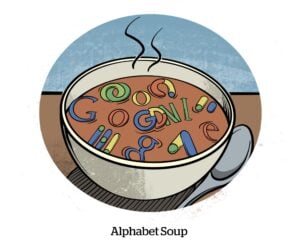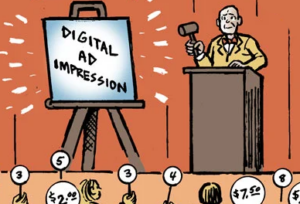 “Data-Driven Thinking” is written by members of the media community and contains fresh ideas on the digital revolution in media.
“Data-Driven Thinking” is written by members of the media community and contains fresh ideas on the digital revolution in media.
Today’s column is written by Jay Friedman, chief operating officer at Goodway Group.
The fun is over. For everyone. That includes the publishers jamming in 10 header tags and 50-plus tracking cookies into their site loads. And consumers who downloaded ad blockers thinking they’ve outsmarted the publishers. And even Google and Apple, which think they’re fixing the internet, but really are just damaging it in a different way.
I’ve always thought this situation analogous to what the music industry went through in the early 2000s. Just like Napster ended the fun for record companies, the Recording Industry Association of America (RIAA) ended the fun for consumers.
But the RIAA’s “solution” eased troubles for artists while making some things worse for consumers. In the years immediately following the downfall of Napster and the beginning of iTunes and other services, listening to your own music across different devices or locations was actually really hard. Today that’s a distant memory thanks to smartphones, Bluetooth and an app ecosystem, but in those initial days of a new market, enjoying the music we paid for was far from seamless.
Adblock Plus is today’s equivalent of Napster, and the fun is over for it too as Google and Apple play the RIAA role. Google’s approach to ad blocking is to block “annoying” ads while Apple’s is to curtail certain types of tracking on its browser. These approaches are just breaking the internet differently. They’re not solving it.
Most publishers are for-profit businesses. They must make money to survive. Ten years ago, we could visit almost any site we wanted and consume the content free with minimal annoyance or interruption. There were no 50-plus tracking cookies or header bidding. It worked for consumers, but not for publishers. Today’s model works better for publishers but not consumers. Sites take too long to load or consume too much data on a wireless plan.
Integrating ad blockers into browsers is a clear no-go for publishers. I see three possible outcomes here.
Outcome #1: Advertising Will Thrive
Browsing the web in the EU requires consumers to accept cookies on every new website visited. The data collection laws in the EU are more restrictive than in the US, including for tracking cookies. But we’re not facing a law that is changing, we’re facing a browser – a tool – that disallows ads and tracking tags that are unauthorized by the user.
I’ve personally learned not to click on Wall Street Journal articles anymore because I don’t have a subscription. If the solution to unlocking that content was simply accepting ads and tracking cookies, though, I’d click “accept” like Pavlov’s dog. This isn’t about my focus group of one person, this is about consumer behavior and how we blindly accept notices, end user license agreements (EULAs) and other warnings to just get where we want to go.
Sites that tell consumers to turn off the ad blocking or tracking tag features in exchange for access to their sites may then have free reign to serve ads and track away. A browser-integrated one-click “accept” button can’t be far off. Whether that is per site or as a default setting, if this is where we’re headed, what did we go through all this for? To give every site its own EULA?
Outcome #2: The Consumer Experience Will Be Worse Overall – At Least For Now
If the one-click accept button did arrive, site browsing would be more of a pain for users than it was before. Now we’d have to click something, when before we didn’t. I don’t believe we’d be subjected to fewer ads or less tracking, I just think we’d have to blind-click more agreements. And, as the process smooths itself out, some web browsing would be more annoying.
In order to avoid a continuously miserable browsing experience, we will need first-party cookies to remember that we’ve accepted being tracked or turned off the ad blocker.
Outcome #3: Microsoft Edge Gains Share – Temporarily
Just as some consumers have thrown their hands up at ads and implemented ad blocking, other consumers will throw their hands up at the disruption this causes in their browsing and switch to Microsoft’s Edge. I don’t see this as long-lived, though. While Safari’s plans are irritating to publishers and advertisers, Chrome’s plan is potentially devastating. As a result, I think we’ll see some give the Edge browser a try, but ultimately return to Chrome once the initial kinks are worked out. A small number may remain permanently switched.
There are many other possible outcomes. Ads could become site-served like some video ads are today, avoiding the ad-blocking aspect of the browser. This requires a lot of work, and I don’t see it winning. I also think publishers will clean up the mess in some ways. Even if the “accept” button allows a site to track all it wants, consumers have spoken clearly and loudly that the current state isn’t acceptable.
As a good friend of mine once told me, “If the fan on your computer has to turn on when you visit a specific site, that’s a problem.” My fan does turn on – all too often.
Follow Jay Friedman (@jaymfriedman) and AdExchanger (@adexchanger) on Twitter.












